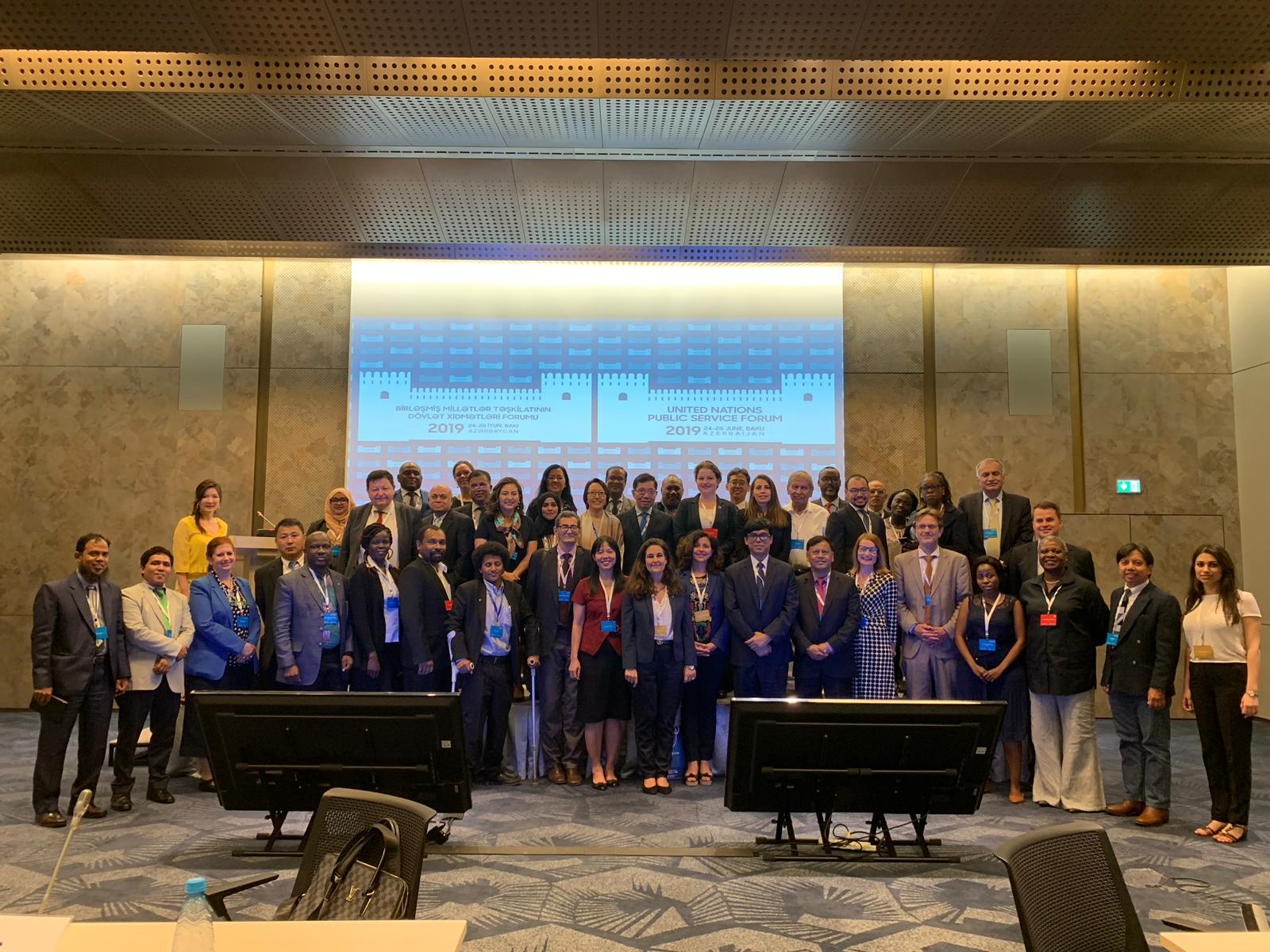United Nations Public Service Forum and Awards Ceremony 2019
#UNPSA2019
The 2019 United Nations Public Service Forum (UNPSF) will take place in the Republic of Azerbaijan from 24 to 26 June 2019, under the theme ‘Achieving the Sustainable Development Goals through effective Delivery of Services, Innovative Transformation and Accountable Institutions’.
The Forum is organized by the State Agency for Public Service and Social Innovations under the President of the Republic of Azerbaijan and the United Nations Department of Economic and Social Affairs (UN DESA) through its Division for Public Institutions and Digital Government (DPIDG) together with the United Nations Entity for Gender Equality and the Empowerment of Women (UN Women). Several partners will also be engaged in organizing parallel workshops or side events.
Effective, inclusive and accountable public-sector institutions are critical for the implementation of the 2030 Agenda and the achievement of the SDGs. They play a key role in achieving interlinkages and policy coherence; designing national development strategies and plans, developing infrastructure, mobilizing resources, monitoring and evaluating public programmes, projects and development activities, and equipping public servants with the capacities to implement the SDGs. They also have an important role to play in providing inclusive services to better serve citizens and leave no one behind, including through digital government.
The 2030 Agenda for Sustainable Development calls for innovative transformation and puts forward values and principles such as ‘leaving no one behind’, integration, partnerships, and universality, which need to be translated into action. Both SDG 16 and SDG 10 are highly relevant to the focus of the 2019 United Nations Public Service Forum. Public institutions need to embrace innovation and transformation to deliver more effective, timely and responsive services, and embody the principles of transparency, accountability and inclusion.
The Forum will provide a platform for Ministers and other senior decision makers to reflect on how to advance progress in realizing the SDGs. Participants will also have the opportunity to debate emerging issues and trends, discuss good practices, strategies and innovative approaches for effective service delivery and innovative transformation in delivering on the SDGs and leaving no one behind, a cross cutting tenet of the 2030 Agenda. It will be a moment to reflect on common challenges and exchange lessons learned from the new approaches and innovations that are being experimented worldwide.
General Information
Working Agenda (Updated on 22 June, 2019)
Plenary Sessions
Plenary 2
SDG 16: Making institutions more effective through enhanced accountability, transparency, inclusion and participation.
Plenary 3
Innovation driving transformation
 Welcome to the United Nations
Welcome to the United Nations




